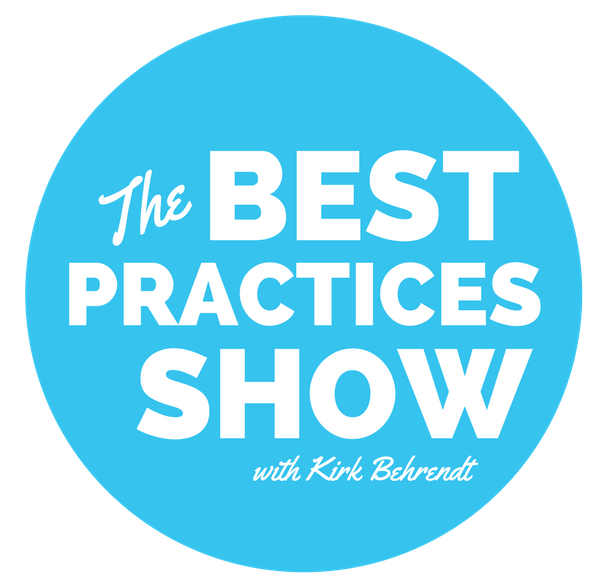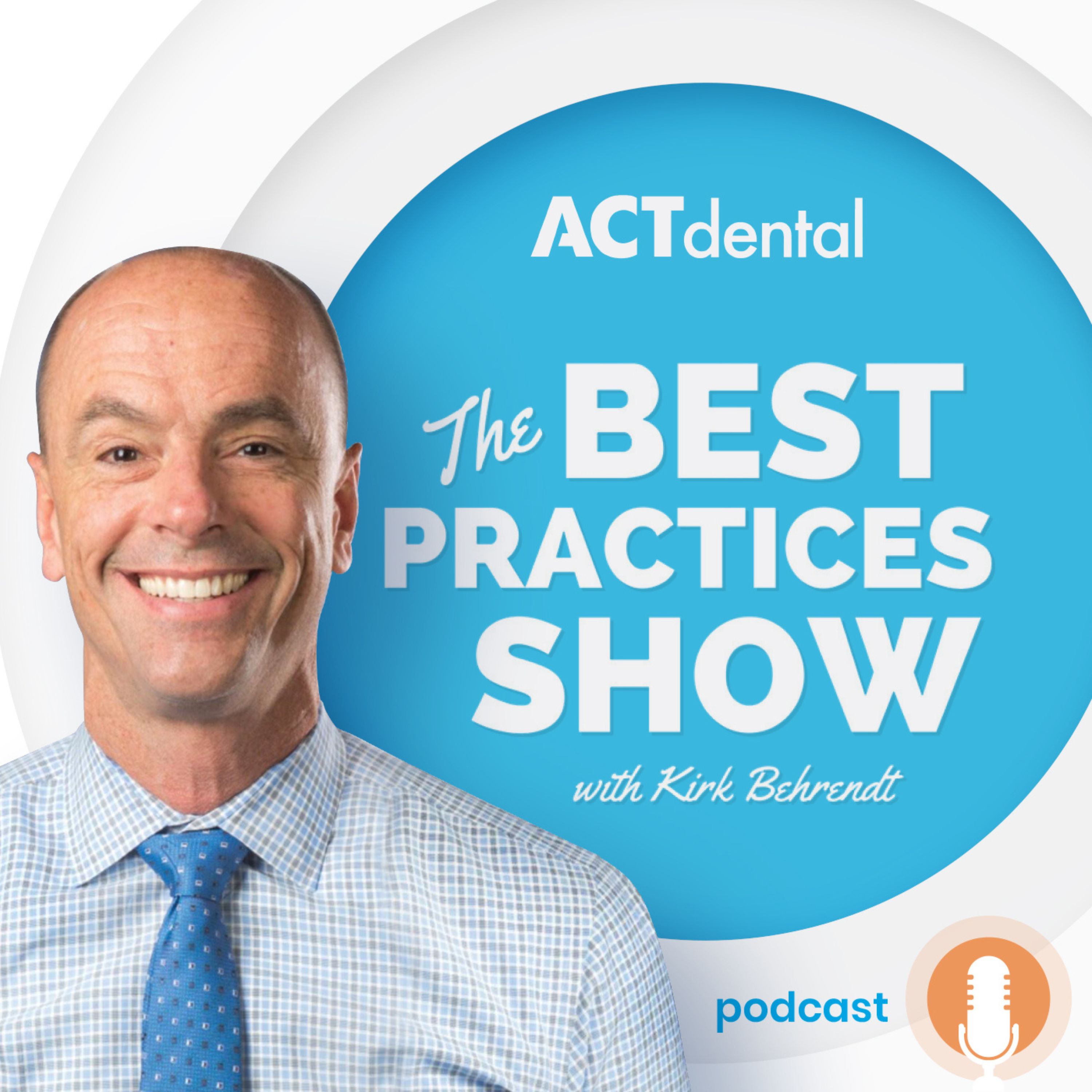Episode 427
427: Things to Pay Attention to Before You Sign a Contract - Dr. Suzanne Ebert
Things to Pay Attention to Before You Sign a Contract
Episode #427 with Dr. Suzanne Ebert
You don't want to buy a practice that's held together with duct tape. That's why you need professional guidance! And today, Kirk Behrendt brings in Dr. Suzanne Ebert from ADA Practice Transitions to help you prepare before you sign on the dotted line. With her expert advice, you will learn how to do your due diligence so you can have a smooth transition. If you want a stress-free transition experience, listen to Episode 427 of The Best Practices Show!
Main Takeaways:
Your ultimate goal is to not be blindsided.
Communication leads to a smooth transition.
Have all the difficult conversations upfront.
Take time to “look under the floorboards”.
Get clarity around what mentorship means.
Be clear on the seller’s exit timeline.
Quotes:
“I don't know if you in your position have ever heard of some transitions where the younger doc comes into the practice, and they look around, and they don't know what's going on here. The systems are not what they thought they were going to be. The staff has not been told that they're the new owner, potentially. The compressor is being held together with duct tape and chicken wire. This happens. It’s a horrible scenario for these doctors coming in. So, what we do is we make sure that that doesn't happen. We have a whole transition plan that goes from start to finish.” (11:21—12:09)
“How are we going to handle the staff? How are we going to inform the staff that this is going on? How are we going to handle if you need to get licensed, if you need to get credentialed with any certain companies? We’re going to make sure that that younger doctor has a checkoff list that basically goes through, ‘Take a look at the equipment. Make sure it’s all functional. What supplies are you using? What do the clinical operations of this practice look like on a day-to-day basis? What's the typical schedule? What do treatment plans look like? Have we talked about that?’ So often, these conversations don't happen. And when they don't happen, the younger doc comes into the practice, and they get blindsided. We don't want that to happen. So, we say starting a couple of months out, you're going to start having these conversations.” (12:36—13:32)
“My very strong opinion is that your staff needs to be involved in the transition. And I contend that if you have been in one practice for 35 to 40 years — I'm going to tell you a secret — your staff probably knows that you're thinking about getting out! And if they don't, start dropping some hints that it’s time. Think about it. I would like everybody who says, ‘I'm not going to tell my staff until the day of the new doctor walking in,’ I want you to put yourself in that staff member’s shoes who has been there, potentially, with you for years and years, feels like they're a very valued part of the office. Think about what they experience when you tell them, ‘So long! I'm no longer your employer. Dr. so-and-so is coming in.’ It’s shocking.” (14:08—15:09)
“Life happens. Things do happen. So, if it is an associate situation, we have a full associate contracting toolkit. And that guides our doctors through, how do you plan for an eventual breakup? If there's a problem, how are we going to handle this? What are we going to do if there's work in progress? What are we going to do if there's a clinical issue that we can't seem to resolve? That's all written out at the beginning. So, again, have the hard conversations before the contracts get signed. There's a lot more to a successful transition than a successful transaction.” (21:41—22:25)
“We are not advocates of dual representation. I can just leave it at that. Every doctor needs to have their own team representing their own interests. I will say that when you follow our system, or when you follow the ADAPT way, there are a lot less disputes. There's a lot more room for negotiation. There's a lot more communication. And communication, in this scenario, is always a good thing.” (22:55—23:30)
“Unfortunately, we have encountered those situations and those scenarios [such as untimely deaths]. And what we do in those cases is we act as the seller’s agents, so to speak. We’re doing everything that we can to get a buyer in as quickly as possible because we know that once a practice isn't operational, the value really takes a nosedive. We've had three doctors, so far. One was a death, and two were an unexpected illness. So, we’ll do everything we can. Like I said, I really just want our dentists to succeed.” (25:37—26:20)
“For me, it was always so important that I was incredibly prepared, no matter what situation I was walking into. If it’s an emergency exam, I want the dental assistant to go in and triage everything. I want to be very prepared when I walk in that room to deal with whatever I'm going to encounter. So, I would approach a transition the same way. When you walk into that office, let's make sure that you've already looked under the floorboards. Let's make sure that all the equipment is in working order. Let's make sure you're not fumbling in the operatory. Let's make sure that you're comfortable with the supplies that are there. Let's make sure that you understand the office processes, especially things like the collections policies. Understand what the staff is going to be saying to the patients as they walk in the door. So, that is the stuff that makes the transition process so much nicer. We want you to have a stress-free first day.” (28:34—29:36)
“Part of what we recommend is a chart audit. There are two different kinds of chart audits. One is randomly taking charts and taking a look and seeing, are these really active patients? The other kind of chart audit is, how does the treatment in progress look? And I think you can get a pretty good sense of what's going on within a practice just by looking at active treatment plans.” (30:16—30:44)
“If I'm looking, and this dentist is not being very forthcoming with active treatment plans, I'm going to want to do a little bit more digging on that chart audit part. But if they're coming to you and the two of you are sitting down together and you're discussing multiple, active treatment plans, ‘Here’s this going on with this patient. Here’s this going on. Here’s this going on,’ and you can see the schedule the way it’s booked out — and you're paying attention to what the schedule looks like booked out. Make sure that it’s not the same exact patient on the schedule six or seven or eight times, which I have seen, unfortunately. Just do your due diligence.” (30:45—31:29)
“I say due diligence is the time to look under the floorboards and see if the house was represented accurately. And that's what we help you with. It comes down to more than the financials. It’s not all about the financials — it just isn't. Because the financials can look great. But then when you walk in, if the practice doesn't fit your style, or you are completely blindsided by things that were going on within the practice that maybe the financials didn't show, it’s going to be more difficult. So, we pay attention to all that.” (31:30—32:05)
“This is something that we address in our associate contracting toolkit. We literally have the doctors sit down together and talk about, ‘Okay, what does this look like? Who’s going to get the “good” patients?’ If you have a heavily PPO practice and you're going to take all the fee-for-service patients and you're going to give the new doctor all the Medicaid patients, you'd better have a different compensation structure for that doctor. So, there are a lot of different things that we cover in that toolkit.” (33:53—34:26)
“The mentoring aspect is part of the integration plan. We specifically spell out, ‘Okay, what does mentoring really look like for you? What is your impression of mentoring, and what's my impression of mentoring?’ It could be two completely different things. We even have that in our online profile, ‘What level of mentoring are you interested in?’ And then we give a couple of different scenarios and say, ‘Pick one. Which one best describes you?’ So, we really do try to address all of these issues upfront.” (34:30—35:07)
“So often, our younger doctors really don't have the ability to purchase a pricey practice, plus pricey real estate. So, if the owner really wants to get out, that becomes a big sticking point. But we can usually resolve that with a right of first refusal after about three to four years. So, if we write that into the contract upfront, that's great. And then, there are some scenarios where our owners just don't want to let go of the real estate for anything. They want to use it as part of their estate, and that has become a sticking point as well. But the point, again, and I keep coming back to it, is understanding all the complexities, addressing these problems before you get too far involved in conversations, and before you spend a bunch of money on a practice that really doesn't fit you.” (35:59—36:53)
Snippets:
0:00 Introduction.
1:34 Dr. Ebert’s background.
2:52 The ADA’s commitment with FQHCs.
3:43 The current state of transitions.
4:57 Practice ownership among younger dentists.
6:01 Why this is an important topic.
7:52 Matchmaking transitioning dentists.
10:21 Critical things that need to be in place.
13:42 Do you tell your team about your transition?
15:09 When to tell your team about the transition.
17:08 Do you include your team in the selection process?
17:53 The ideal purchasing process.
20:32 Planning for unexpected breakups.
22:30 Thoughts on dual representation.
23:30 Help with facilitating transitions.
25:06 When there is only a seller.
27:14 Pitfalls before signing.
29:36 Do your due diligence.
32:05 When the seller only leaves enough patients for themselves.
32:53 Addressing mentorship upfront.
35:08 Be clear on the seller’s exit date.
37:14 Last thoughts.
38:12 Dr. Ebert’s contact information.
Reach Out to Dr. Ebert:
Dr. Ebert’s email: eberts@ada.org
Dr. Ebert’s Facebook: https://www.facebook.com/AmericanDentalAssociation
Dr. Ebert’s social media: @americandentalassociation
Resources:
ADA Practice Transitions website: https://www.adapracticetransitions.com/
Dr. Suzanne Ebert Bio:
Dr. Suzanne Ebert graduated from the University of Louisville College of Dentistry in 1998. After completing a residency, she started a solo private practice and enjoyed being a private practitioner for 11 years. Upon the sale of her practice, she elected to continue her career by providing dental care to indigent populations as the Dental Director at a local Federally Qualified Health Center. Under her tenure, the clinics expanded and addressed real needs in the community such as eldercare, special needs care, and ER diversion. As Adjunct Faculty for the University of Florida, she had the privilege of working directly with senior dental students as they rotated through the clinics. Dr. Ebert is unwavering in her desire to protect private practice dentistry. She is a vocal advocate of having a strong association to lead the dental profession through the issues facing it today.


